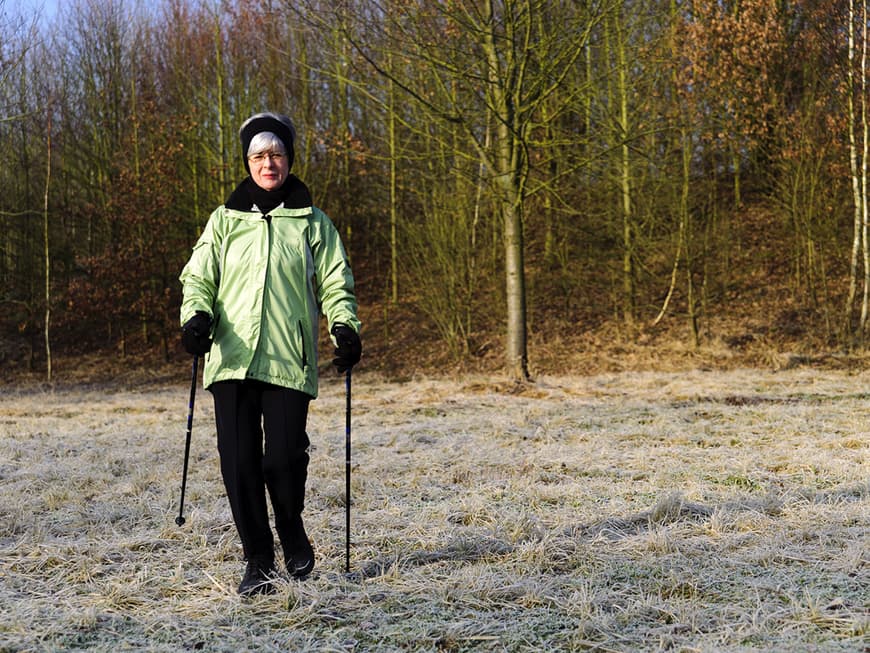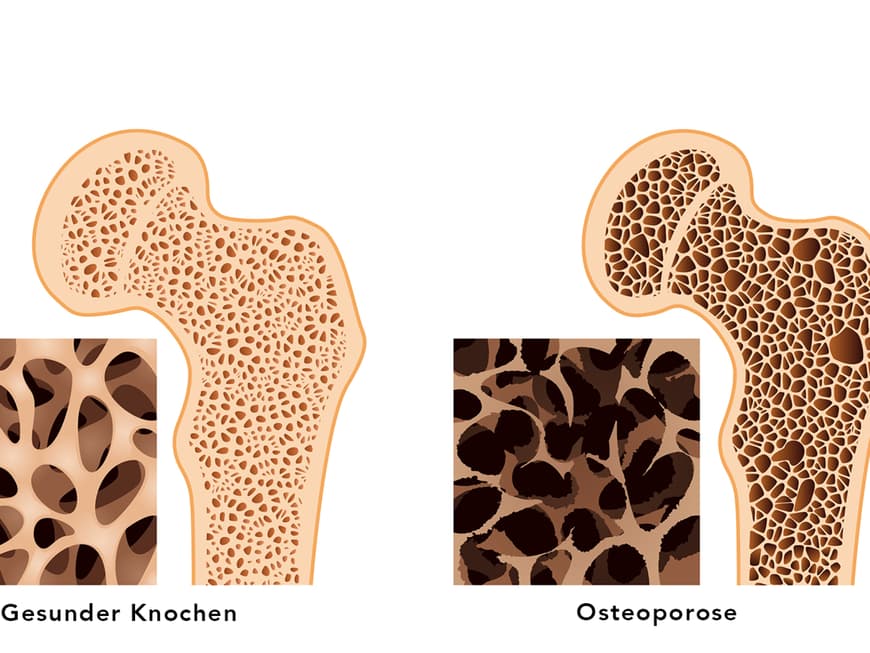An elderly lady is inattentive, takes a wrong step and trips. She falls and breaks her hip. She never recovers and becomes a nursing case. Unfortunately, this happens quite often. But osteoporosis can be prevented.
Osteoporosis: causes and symptoms
This is caused by bones that are no longer stable enough. Doctors speak of osteoporosis (from the Latin os = bone and Greek poros = opening). This is a skeletal disease that affects every bone and in which the bone density decreases. The so-called bone beads become increasingly thinner and narrower and sometimes break. This reduces the load-bearing capacity of the bone and leads to osteoporosis-related bone fractures, particularly in the spine and femoral neck.
"Osteoporosis-related bone fractures can mean pain and immobility (= severely restricted mobility) for the affected patients, including the need for care, and thus a massive reduction in their quality of life," explains Prof. Dr. Heiner Mönig, Senior Physician at the Department of Internal Medicine at the University Medical Center Schleswig-Holstein (UKSH), Kiel Campus.
A fracture of the femoral neck or hip caused by osteoporosis also greatly increases the risk of dying within a year of the fracture. Recently, Australian researchers even found that not only a hip fracture, but any osteoporosis-related fracture (except in the fingers and toes) increases the risk of death.
Preventing osteoporosis: 1000 milligrams of calcium per day
This makes it all the more important to prevent osteoporosis, recognize it in good time and treat it. "A balanced diet and regular exercise are the basis for healthy bones. This is because the body cannot produce bone building blocks such as calcium itself," explains Prof. Mönig. All dairy products are particularly rich in calcium, as are many vegetables, wholegrain foods and many mineral waters. We should consume a total of 1000 mg of calcium per day.
Vitamin D helps the body to incorporate calcium into the bones. Frequent exposure to fresh air, especially in summer, provides us with it. Exercise is essential for strong bones. This is because muscles and tendons exert a stimulus on the bones that encourages them to grow and stabilizes them.








